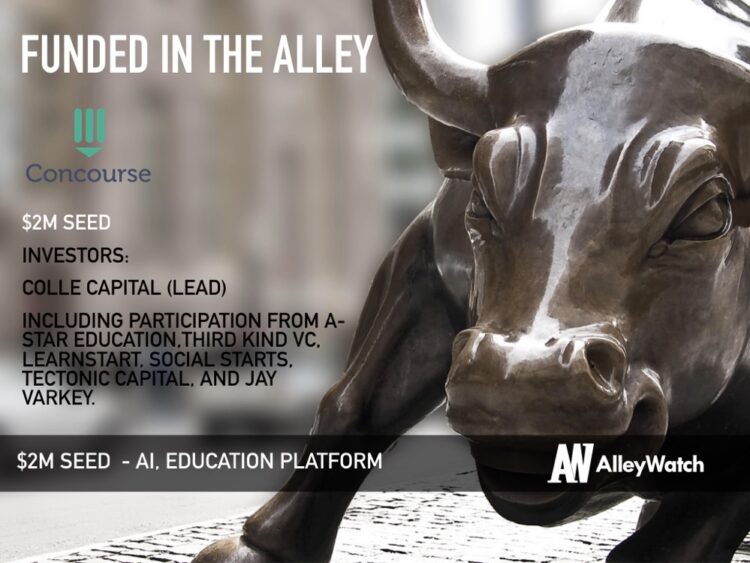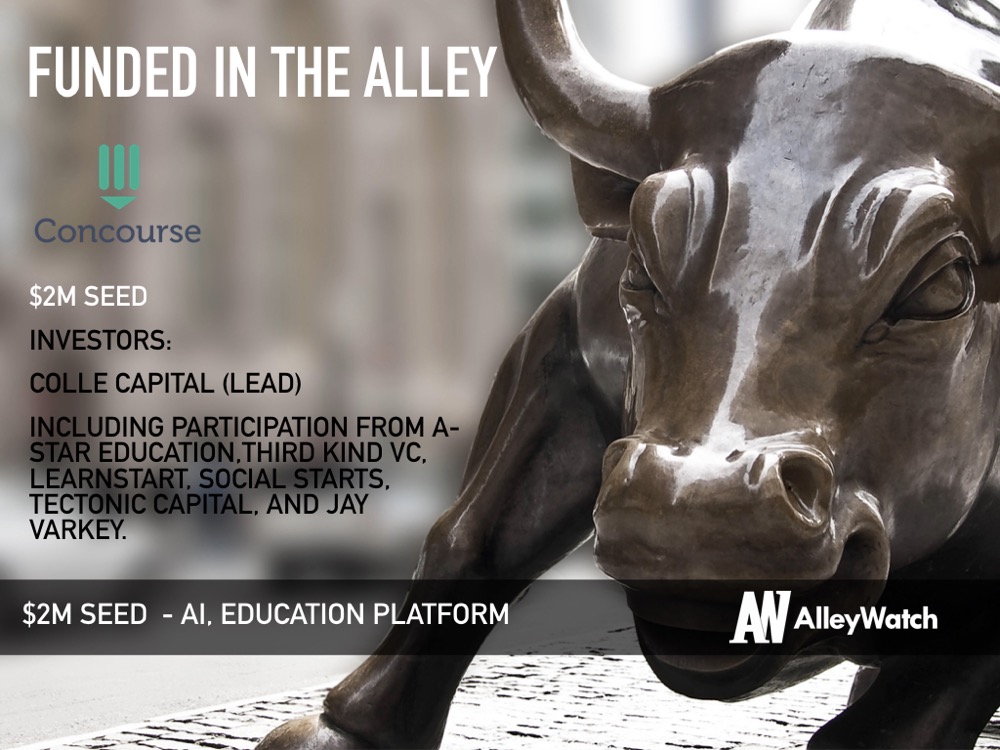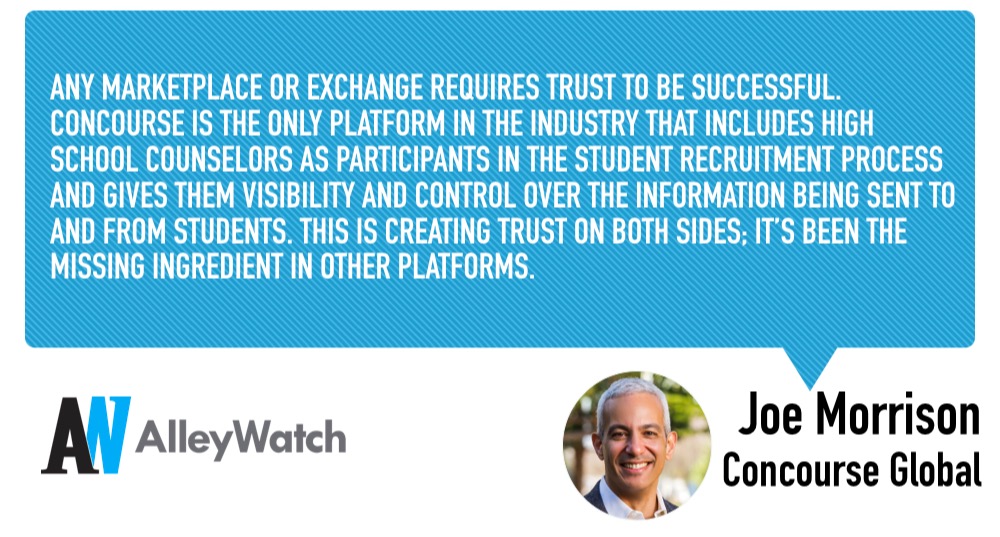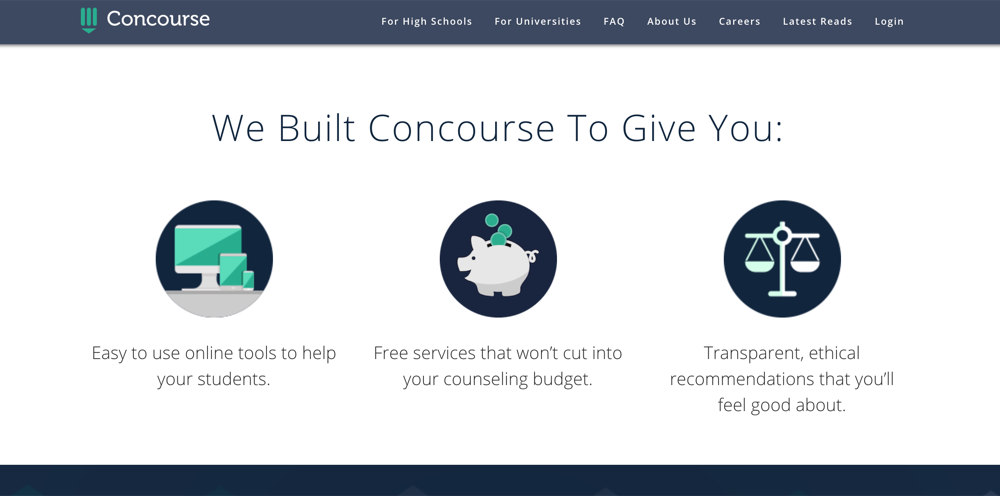Ask any high school guidance counselor about the college application process, and they will tell you it’s filled with frantic students making last-minute appointments for guidance for a major life decision. But it doesn’t need to be this way; especially since Concourse Global created its AI-powered platform to help high school counselors navigate the college application process. This platform combines counselors’ intelligence and expertise with intuitive algorithms to generate a list of best-fit colleges for high school students.
AlleyWatch spoke with CEO and founder Joe Morrison about creating a startup that is filling a gap in the college application process.
Who were your investors and how much did you raise?
Seed investment round of $2M. Investors included: Colle Capital, A-Star Education,Third Kind VC, LearnStart, Social Starts, Tectonic Capital, Jay Varkey (Group Executive Director of GEMS Education), and various individual investors.
Tell us about the product or service that Concourse Global offers.
Our mission is to make higher education more globally accessible. Our platform brings together human advisors and artificial intelligence to help high school counselors provide guidance and support to students in their higher education journey, and to enable higher education institutions to discover the students and make personalized offers.
What inspired you to start Concourse Global?
I’ve been working in International Education for many years, and I came to see too many students around the world choosing their higher education based on biased or ill-informed advice from third parties. I made it my mission to create an alternative, high integrity marketplace in which students, counselors, and university admissions can collaborate directly around the student placement process.
How is Concourse Global different?
Any marketplace or exchange requires trust to be successful. Concourse is the only platform in the industry that includes high school counselors as participants in the student recruitment process and gives them visibility and control over the information being sent to and from students. This is creating trust on both sides; it’s been the missing ingredient in other platforms.
What market does Concourse Global target and how big is it?
Universities spend $10B / year on marketing and student recruitment, and this is climbing rapidly. That’s the market we’re going after.
What’s your business model?
Universities pay fees to Concourse for marketing and student recruitment services. These are delivered with transparent rules of engagement; Concourse gives high school counselors tools to monitor and control the process.
Why are individual students not eligible to use Concourse?
Part of what makes our recommendations so strong is that the counselor can weigh in on things the student may not think about- The counselor may know that there are many children in a family- so funding will be tight, or they may know more sensitive things, like that a student has anxiety and would be more successful in smaller classes. Counselor oversight also is what ensures accuracy in a student’s profile, which is important for universities who are looking for students with certain grades or test scores.
What was the funding process like?
A massive amount of work, meeting investors and putting the round together, deal by deal. It took months of time and effort to find the right group, but I’m thrilled with the outcome and the investors that are participating.
 What are the biggest challenges that you faced while raising capital?
What are the biggest challenges that you faced while raising capital?
Two-sided markets are inherently difficult. They are high-risk, high-return businesses, and require a bootstrapping strategy. Also, our market is in the education space, which has a reputation for being hard to sell to. So we had to convince a critical mass of investors to look beyond those challenges and see the potential of our business.
What factors about your business led your investors to write the check?
It came down to the fact that we have more domain knowledge than anyone else in the industry, a new, viable approach that hasn’t been tried before, a workable bootstrapping strategy, and a few “unfair advantages” that make us likely to win. We found in Colle Capital a lead investor who was willing to do real due diligence, see that we tick all the boxes, and stick to their convictions throughout the negotiation of the round.
What are the milestones you plan to achieve in the next six months?
Right now we’re focused on filling open positions, accelerating our software development, delivering more software functionality for high school counselors including intelligent matching (of students with academic programs), and bringing more high schools onto the platform.
What advice can you offer companies in New York that do not have a fresh injection of capital in the bank?
I would offer the following advice to any startup company regardless of location: If you’re trying to bootstrap a company with minimal resources, ask yourself what hypotheses you need to prove, to show investors that you have a viable idea, then figure out the very cheapest way to prove the hypotheses. In our case, we cobbled together a prototype using Cognito Forms, and were able to prove our initial hypothesis without writing a line of code.
Where do you see the company going now over the near term?
We’ve already built the industry’s best solution for connecting students and well-matched university programs. In the near term we will be expanding our functionality to better enable rich ongoing student-university interaction, i.e. how can the platform best maintain a connection between students and universities, after they’ve been connected?
What’s your favorite restaurant in the city?
There are so many great places to eat in NYC. I think I have to go with Sushi Yasuda – omakase at the bar – as my very favorite place for special occasions.






